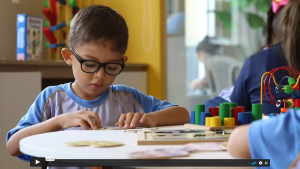
“A school’s mission is not to produce people of authority but people of true ability , intelligence
and conviction who will advance themselves to the good of people.” Tsunesaburo Makiguchi (
Soka Education)
Science is a way of life . It enables an individual to think rationally and base decisions on logic and
reasoning . It becomes utmost important specially in the primary years of schooling when a child
begins to develop an independent thought process.
Being a science teacher I always feel that the learning experience has to be structured in such a way
that the nature of science becomes an inherent part of the child’s thought process.
But what is scientific attitude and temper?
An individual with scientific temper doesn’t believe in things until tried and tested. The spirit of
enquiry and observation becomes the guiding approach . And at the same time one is ready to
change decisions , when evidences points in another direction .
We often think that the ones who study science automatically develop scientific temper. But that
is not true , to develop a scientific way of thought process a reflective and experiential curriculum
right from the primary years is important. A learner centric ,progressive , enquiry based ,reflective
curriculum enables a child to think rationally and base decisions and actions on evidences.
How can i develop scientific temper in my child?
Child’s scientific temper is directly related to the environment he/she is in and the company he/she
keeps. So the curriculum at school and parenting style has lot to offer towards the development of
scientific temper in a child. A collaborative approach where the teachers and parents work together
is essential .
In this blog I’ve zeroed on few strategies which both teachers and parents can employ to
development such a temper in a child .
-
- If the mind is not curious , it gets stagnant – The curiosity quotient of the child , the nature
of seeking answers to events around is a very significant behaviour towards scientific
temper. In other words, curiosity can be a great motivator that makes the brain sincerely
want to learn. When we praise learners by describing how their questions,
explorations, and investigations are contributing to their own or classroom
learning, we let them know that they are valued for their motivation, regardless
of the grade they achieve. The same applies at home too. At times due to o ur
busy schedule , we often tend to leave many curious questions unanswered which
needs to be avoided as parents. - Develop good reading habits – One with a scientific temper is well aware , open minded ,
well versed and an avid reader . With increasing influence of technology , parents are
worried about the diminishing interest in reading .So as to inculcate reading, various वेज़ can be employed at home and classroom . By creating a reading space or fixing exclusive reading days at home and even classroom can be a good way . We often tend to make children read according to our choices but rather than forcing them , we need to make them have their independent choices to read . But what is important to note that the material
they choose , should be age appropriate. The best way to encourage reading is by setting
our own example. When the child observes their teachers and parents reading , they
instantly develop an urge to read. - Stimulating logical and critical thinking by fun games and acivities – Activities based on
riddles , brain teasers , logic ,reasoning and analysis infuses excitement and stimulates
learners to think critically . Chess , board games ,crosswords ,puzzles are some very good
options easily available . - By directing children to let the screen time be more focussed on scientific programmes will
expose them to the latest scientific developments around. Discovery science, Scishow
science, Emily’s wonder lab , Brainchild are few good options . - Exposure to variety of science magazines is a good way to increase awareness about
scientific developments happening globally . National Geographic kids, Bill Nye’s Great big
world of Science , Edible Science can be looked upon.
Providing the right environment and a collaborative efforts of teachers and parent during
primary years will be a deciding factor in raising independent , confident learners with a
scientific temper.
- If the mind is not curious , it gets stagnant – The curiosity quotient of the child , the nature
